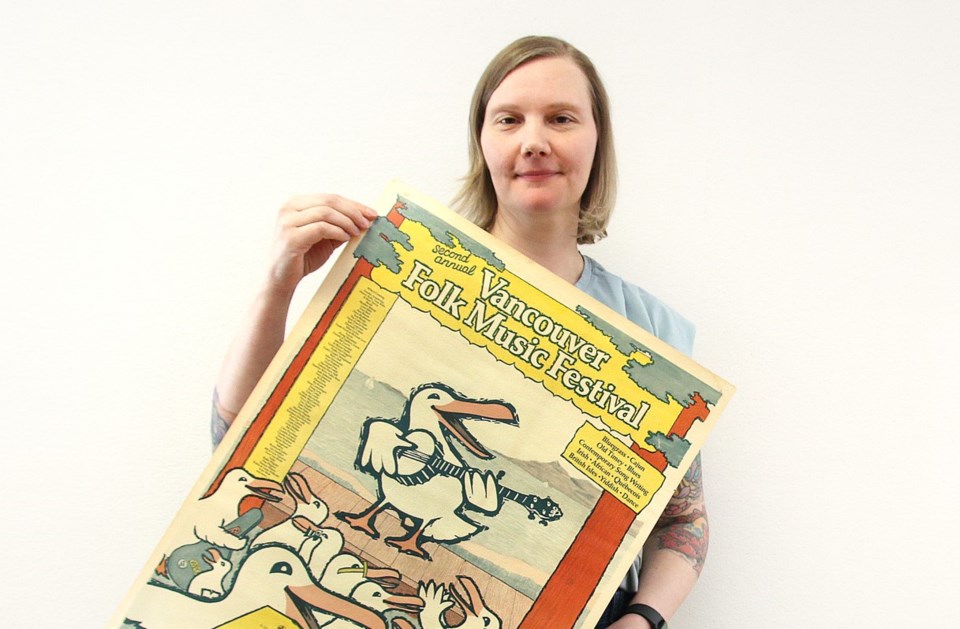Days before the Vancouver Whitecaps played what some described as the team’s biggest match since the 1979 Soccer Bowl, the team finalized a sponsorship agreement worth millions of dollars.
That success came in what has been a challenging environment for many arts and entertainment companies that are seeking — and reliant on — corporate dollars.
The Whitecaps inked a 2.5-year deal with Borden Ladner Gervais (BLG) to put the law firm’s logo on the team’s sleeve for “millions” of dollars, Whitecaps CEO Axel Schuster told BIV.
Schuster and BLG national managing partner David Di Paolo said that they had been discussing a sponsorship deal since last year.
The team’s success reaching the CONCACAF Champions Cup final helped speed up the deal’s signing, they said, as BLG saw the opportunity to be on the team’s sleeve in what could have been a historic victory with memorable photos, had the team not lost to Cruz Azul in Mexico.
The Whitecaps in December announced that the team was seeking new ownership, and Schuster told BIV that this disrupted some sponsorship talks.
“We had to get over some bumps as some of the companies that were interested asked us more questions about what a long-term agreement would mean,” he said.
“There was chatter that the club might move but we always say that will not happen.”
Schuster said Telus Corp. will remain the team’s main jersey sponsor and that Bank of Montreal will continue to have its brand on training uniforms. The team is not seeking any more uniform sponsors, Schuster said.
Di Paolo told BIV he sees the deal’s real value as being the chance to partner with a well-known and respected brand across Canada.
“We’re always looking to build kind of partnerships with clients who want to give us their legal work,” Di Paolo said. “Certainly, that is part and parcel of this but that’s not the real value proposition.”
Schuster confirmed that the team will go to BLG for all external legal work.
BLG has historically focused sponsorship dollars on local events, Di Paolo said.
“This was an opportunity for us to think bigger and get our logo out there beyond our core client base,” he said.
Executives at Vancouver festivals say they are operating in a tough economic climate and would love to have more corporate sponsorship.
The Vancouver International Jazz Festival (VIJF) runs June 20 through July 1 in what will be its third iteration without a title sponsor.
The Toronto Dominion Bank ended its roughly 20-year sponsorship of the festival in 2022 with what the festival said at the time was little explanation. The bank then ended sponsorship at jazz festivals in Ottawa, Calgary and Toronto.
VIJF executive director Nina Horvath told BIV her festival is still seeking a title sponsor.
“The whole landscape has shifted quite significantly, so we’ve certainly readjusted our strategy for what we’re looking for,” she said, without wanting to elaborate.
The VIJF lists seven corporate partners on its website, as well as official suppliers and government funding agencies.
The Coastal Jazz & Blues Society, which hosts the festival, has an annual budget of around $2 million, which roughly hasn’t changed in the past couple of years, Horvath said. The summer festival generates the lion’s share of that annual revenue.
Pre-pandemic, the society had annual budgets in the range of $4 million to $4.5 million.
It is planning 187 shows at this year’s festival, up from 170 last year, with headliners such as Bill Frisell and Richard Bona.
The Vancouver Folk Music Festival (VFMF) plans to launch a few weeks after the VIJF, July 18 through 20, and is similarly without a title sponsor.

(Photo: Lisa Gardin is general manager of the Vancouver Folk Music Festival | Rob Kruyt, BIV)
That festival, which had financial challenges severe enough to almost force its dissolution during the pandemic, has recently put more emphasis on finding corporate sponsors, general manager Lisa Gardin told BIV.
Key sponsors this year include Parallel 49 Brewing Co. and Hester Creek Estate Winery, which are providing beverages to the festival at wholesale prices for resale at beer gardens. Parallel 49 is also providing in-kind donations, Gardin added.
“This is the second year that we’ve actually had a dedicated sponsorship manager,” she said. “This is a bit of a newer adventure for the festival as it’s not something that was one of our key income streams in the past. I think that as government grants are shifting with the political climate, we need to put some more effort into building those long-term relationships.”
Were a potential title sponsor to express interest, Gardin said the proposal would go to the festival’s board of directors for approval.
“In the past, we haven’t chosen to do a larger primary sponsorship like that, and like with all of our sponsors, we would want them to align with our core values and our vision, and some of those larger sponsors may not.”
Gardin estimated her festival’s budget to be in the $2 million range, with most revenue coming from ticket sales.
“Government grants account for 20 per cent of our forecasted income this year, but only about half the grants have been confirmed and received at this point,” she said.
The folk festival last year attracted around 23,000 people across three days.



